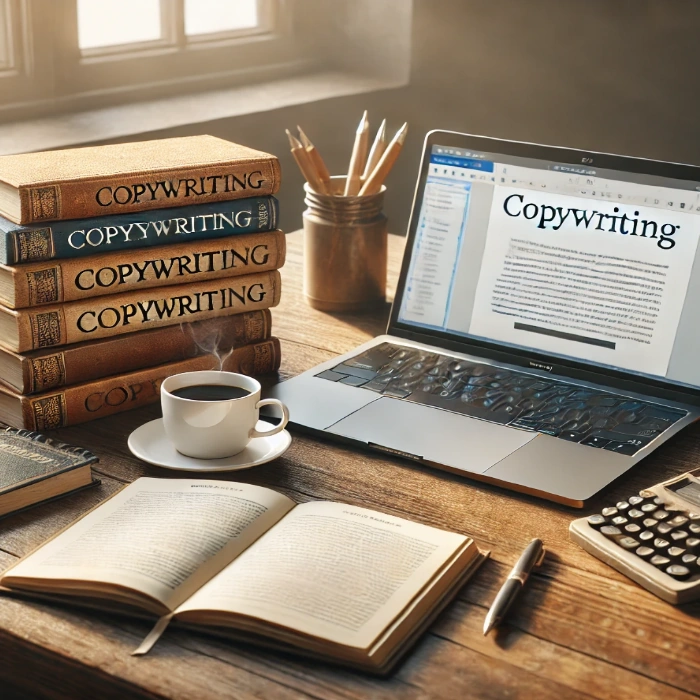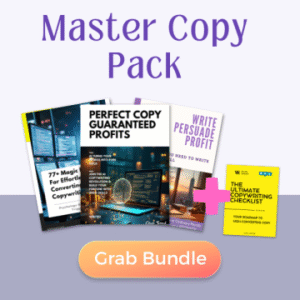In today’s digital landscape, mastering the art of copywriting isn’t just valuable—it’s essential for business growth. Whether you’re crafting sales pages, social media posts, email campaigns, or website content, the right words can dramatically impact your conversion rates and bottom line. This Copywriting Book Recommendations explores the most influential copywriting books that have shaped the industry, organized by experience level, specialization, and core principles.
Foundational Copywriting Books Every Professional Should Own
The Copywriter’s Handbook by Robert W. Bly
Key Strengths: Comprehensive coverage of fundamentals with practical frameworks Best For: Beginners and intermediate writers looking for actionable techniques What You’ll Learn: This regularly updated classic covers everything from headline formulation to body copy structure. Bly provides specific formulas for headlines, including the powerful “How to” framework, the curiosity-inducing “Secret of” approach, and the problem-solving “Warning” headline style. The book includes over 100 real-world examples across different industries, making abstract concepts immediately applicable.
Breakthrough Advertising by Eugene Schwartz
Key Strengths: Deep psychological insights into market sophistication Best For: Intermediate to advanced copywriters ready for strategic thinking What You’ll Learn: Schwartz introduces the revolutionary concept of five market awareness levels that determine how you should approach your audience. His framework for creating “mass desire” and identifying the exact stage of market sophistication will transform how you position products. The book also covers Schwartz’s famous “38 emotional triggers” that drive purchase decisions.
Scientific Advertising by Claude Hopkins
Key Strengths: Timeless principles of testing and measurement Best For: Data-driven marketers and copywriters What You’ll Learn: Though written in 1923, Hopkins’ principles on measurement and testing predated modern A/B testing by decades. His insights on reason-why advertising, the power of specificity, and the importance of addressing objections directly remain foundational to effective copywriting today. Hopkins’ principles have influenced virtually every major copywriter since publication.
Advanced Psychology-Based Copywriting Resources
Influence: The Psychology of Persuasion by Robert Cialdini
Key Strengths: Scientifically-validated persuasion principles Best For: Copywriters looking to understand the “why” behind effective tactics What You’ll Learn: Cialdini’s six principles of persuasion—reciprocity, commitment/consistency, social proof, authority, liking, and scarcity—provide the psychological framework for all effective copy. The book includes detailed case studies showing how each principle can be ethically applied in marketing contexts. The updated edition also includes a seventh principle: unity.
Cashvertising by Drew Eric Whitman
Key Strengths: Accessible breakdown of advertising psychology Best For: Practical application of psychological triggers What You’ll Learn: Whitman distills complex psychological research into actionable techniques through his “Life Force 8” human desires and “9 Buyology Principles.” The book features specific formulations for emotional triggers, including the exact words that increase desire. His chapter on the psychology of pricing strategies is particularly valuable for conversion optimization.
Made to Stick by Chip Heath and Dan Heath
Key Strengths: Framework for creating memorable messages Best For: Content marketers and copywriters focusing on brand messaging What You’ll Learn: The Heath brothers’ SUCCESS framework (Simple, Unexpected, Concrete, Credible, Emotional, Stories) provides a systematic approach to creating messages that resonate and are remembered. Their research into “urban legends” reveals why certain ideas spread while others disappear, with direct applications to viral marketing and brand storytelling.
Digital-Specific Copywriting Books
Web Copy That Sells by Maria Veloso
Key Strengths: Digital-focused techniques with proven conversion results Best For: Online marketers and e-commerce copywriters What You’ll Learn: Veloso provides specific frameworks for different digital formats, including her 5-step persuasion architecture for landing pages and her “Emotional Motivators Sequence” for email campaigns. The book includes detailed case studies showing how small copy changes produced dramatic conversion increases, with before-and-after examples that demonstrate the principles in action.
Building a StoryBrand by Donald Miller
Key Strengths: Customer-centric messaging framework Best For: Brand messaging and website copy What You’ll Learn: Miller’s 7-part SB7 Framework adapts classic storytelling structures to business communication. His approach positions the customer as the hero and the brand as the guide, with specific formulations for clarifying your offer, communicating benefits, and creating compelling calls to action. The book includes a complete website wireframe template based on the framework.
Content Chemistry by Andy Crestodina
Key Strengths: SEO-driven content creation strategies Best For: Content marketers balancing SEO with conversion copy What You’ll Learn: Crestodina integrates SEO best practices with compelling copywriting techniques. His “10-Minute Content Audit” helps identify high-impact opportunities, while his “Forever Content” framework guides the creation of evergreen assets. The book includes detailed analytics interpretation guidelines that help you measure the effectiveness of your copy.
Specialized Copywriting Techniques
The Adweek Copywriting Handbook by Joseph Sugarman
Key Strengths: Emotional engagement and flow techniques Best For: Long-form sales copy and storytelling What You’ll Learn: Sugarman’s “slippery slide” concept shows how to create irresistible momentum in your copy. His 17 psychological triggers include lesser-known concepts like “satisfaction conviction” and “consistency and balance.” The handbook also covers Sugarman’s famous “seeds of curiosity” technique that keeps readers engaged through lengthy copy.
The Boron Letters by Gary Halbert
Key Strengths: Authentic voice development and direct response principles Best For: Direct response copywriters and email marketers What You’ll Learn: Written as letters to his son from prison, Halbert’s unconventional guide reveals insider techniques for creating authentic connection through copy. His specific formulations for opening hooks, offer positioning, and closing techniques have directly influenced many of today’s highest-paid copywriters. The book also covers his famous “coat-of-arms” technique for market research.
Tested Advertising Methods by John Caples
Key Strengths: Data-backed headline and body copy formulas Best For: Results-oriented copywriters seeking proven templates What You’ll Learn: Based on thousands of tested advertisements, Caples provides 35 proven headline formulas categorized by emotional appeal. His research on the specific impact of different appeal types (fear, exclusivity, curiosity, etc.) helps you choose the right approach for your market. The book includes detailed analysis of why specific ads outperformed others by substantial margins.
Industry-Specific Copywriting Resources
The Ultimate Sales Letter by Dan Kennedy
Key Strengths: Direct mail and sales letter techniques adaptable to digital formats Best For: Long-form sales copywriters and email marketers What You’ll Learn: Kennedy’s systematic 28-step process for creating compelling sales letters can be applied to any medium. His “Problem-Agitate-Solve” formula has become industry standard, and his specific techniques for increasing perceived value have generated billions in sales. The book includes templates for different industries and 15 ways to open a sales letter for maximum impact.
Letting Go of the Words by Janice Redish
Key Strengths: Web usability and clarity-focused content strategies Best For: UX writers and website copywriters What You’ll Learn: Redish combines usability research with copywriting principles to optimize online reading experiences. Her “layer cake” approach to web content organization ensures readers find what they need quickly. The book features detailed before-and-after website analyses with eye-tracking research showing exactly where readers look and why certain formulations work better than others.
Launch by Jeff Walker
Key Strengths: Email sequence frameworks for product launches Best For: Digital product creators and email marketers What You’ll Learn: Walker’s Product Launch Formula provides a step-by-step email sequence framework that has generated over a billion dollars in sales across various industries. His “Seed Launch” technique helps you create copy that resonates with specific market segments, while his “Sideways Sales Letter” approach adapts long-form sales techniques to email sequences.
Contemporary Digital Copywriting Innovations
This Is Marketing by Seth Godin
Key Strengths: Contemporary value-based marketing approaches Best For: Brand-focused copywriters and content strategists What You’ll Learn: Godin introduces the concept of “minimum viable audiences” and demonstrates how targeting specific worldviews creates more resonant copy. His framework for identity-based marketing shows how to position products as tools that help customers become their desired selves. The book includes specific techniques for creating “tension” in copy that motivates action.
Everybody Writes by Ann Handley
Key Strengths: Content marketing and brand voice development Best For: Content teams and brand copywriters What You’ll Learn: Handley provides 74 practical writing rules that improve clarity and impact. Her “Content Tools” section covers specific approaches for different formats, from landing pages to case studies. The book includes her IDEA framework (Interesting, Different, Empathetic, Audience-focused) for evaluating content effectiveness.
The 16-Word Sales Letter by Evaldo Albuquerque
Key Strengths: Streamlined persuasion formula for modern attention spans Best For: Direct response and social media copywriters What You’ll Learn: Albuquerque’s minimalist framework focuses on the core elements that drive conversion, distilled into a powerful 16-word formula. His research shows how unnecessary complexity undermines conversion, with case studies demonstrating significant performance improvements after simplification. The book includes templates for adapting the formula to different products and audience sophistication levels.
Implementing What You Learn: From Theory to Practice
Building Your Copywriting Reference Library
For beginners just starting their copywriting journey, I recommend beginning with these three essential books:
- Start with: The Copywriter’s Handbook by Robert W. Bly for a comprehensive foundation
- Then add: Cashvertising by Drew Eric Whitman to understand the psychological triggers
- Follow with: Building a StoryBrand by Donald Miller to structure your messaging
For intermediate copywriters looking to specialize, select from these based on your focus area:
- For content marketing: Pair Everybody Writes with Content Chemistry
- For direct response: Combine The Boron Letters with The Ultimate Sales Letter
- For digital product launches: Study Launch alongside Web Copy That Sells
Advanced practitioners should invest in the more conceptual works:
- Breakthrough Advertising will transform your strategic approach
- Influence will deepen your understanding of why certain techniques work
- This Is Marketing will help you adapt to changing consumer expectations
Practical Application Systems
To maximize your learning from these books:
- Create a swipe file: Maintain a collection of examples organized by principle and technique
- Develop formula templates: Extract the specific formulations and create adaptable templates
- Build a testing calendar: Systematically test different approaches from each methodology
- Track results meticulously: Record which techniques perform best for your specific audience
- Combine approaches: The most effective copy often integrates multiple frameworks
Beyond Books: Complementary Learning Resources
While books provide the foundation, supplement your learning with:
- Copywriting courses: Platforms like CopyHackers, AWAI, and CopySchool offer structured implementation
- Industry newsletters: Copy blogs from Joanna Wiebe, Eddie Shleyner, and Ramit Sethi provide contemporary examples
- Copy critiques: Communities like The Copywriter Club offer peer feedback on implementation
- Split-testing tools: Software like Optimizely and VWO help you validate book theories with real data
Conclusion: Creating Your Copywriting Mastery Path
The most successful copywriters don’t simply read these books—they systematically implement the principles, test the results, and develop their own hybrid approaches based on what works for their specific markets.
Begin with the foundational works, gradually incorporate more specialized techniques as you gain experience, and always measure the impact of your implementation efforts. The books recommended in this guide represent over a century of collective wisdom in persuasive communication, offering tested frameworks that can dramatically improve your marketing results.
By studying these authoritative works and consistently applying their principles, you’ll develop copywriting skills that can transform your marketing effectiveness and drive substantial business growth.

